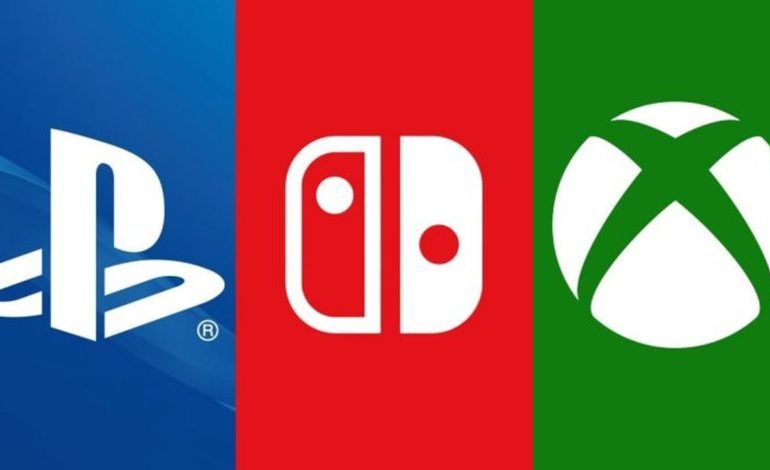

When the pandemic hit the U.S., a lot of things were affected including the video game industry. Like many workers, developers had to shift to working from home. Press events like E3 and Gamescom had to either cancel or shift to an online event. The release of Xbox Series X|S and PlayStation 5 was affected by the pandemic due to a supply shortage. Despite everything, the video game industry saw a huge boost in sales across the board as many people went to video games to cope with being in lockdown. This year, as things have opened up, it seems that spending on video games is on the decline amid the return of a possible recession. Nintendo, Microsoft, Sony, and more have all reported declining revenue and missed earnings expectations in the past two weeks.
Nintendo reported an operating profit of 101.7 billion yen ($764 million.) This fell short of analyst expectations by about 13.5 billion yen ($101.4 million.) Last year, Nintendo Switch sales came in at 4.45 million. This year, they went down to 3.43 million. Software sales also declined from 45.3 million to 41.4 million units. PlayStation software sales declined by about 25%. Last year, they sold 63.6 million PlayStation 5 and PlayStation 4 titles. This year, the number went down to 47.1 million units sold. Microsoft reported a $259 million decline in gaming revenue.
Publisher Activision Blizzard reported $1.64 billion net revenue which is a $700 million dip compared to the same time last year. EA also reported its earnings which is positive compared to the other companies. EA sales went up 22%. “Electronic Arts was wise to stick to its tried-and-true formula of monetizing popular franchises. EA has managed to corner the sports video games market with FIFA, NFL Madden, and its recent addition F1,” said Joost van Dreunen, a lecturer on the business of games at the NYU Stern School of Business. “EA is proving its mastery of monetization with record sales for FIFA Mobile for the quarter, the highest sales for the FIFA franchise, and a 40% increase in daily average players.”
All of the companies attributed the decline to the weakened supply chain that happened due to the pandemic. They can’t get their consoles to stores. Nintendo said that despite the issues, they are anticipating to sell a total of 21 million units in the financial year ending next April.
Chief Financial Officer Hiroki Totoki said that the main issue for PlayStation’s decline was meeting demand for consoles while dealing with the supply chain issues. He also mentioned that there were fewer large games released this financial year compared to last year. “There are two big constraints that we are imposed with. One is the parts and components availability. The other one is supply chain,” Totoki said after repeated questions about the PS5′s supply issues. “We want to produce as many units as possible.” Totoki also attributed the drop in software sales to people getting more opportunities to leave home as COVID-19 infections decrease in key markets.
Microsoft said that decreased demand for Xbox content and hardware, partially offset by the growth in Xbox Game Pass subscriptions is the reason for its decline in profits. “Microsoft’s decision to push into subscriptions is proving timely as its newfound revenue stream is offsetting its broader declines across software and hardware sales,” Van Dreunen, the games business lecturer, said. “Subscriptions tend to provide more value to consumers during periods when the economy is proving softer and inflation high. It remains to be seen, however, how Game Pass will stack up as rival Sony ramps up its offering, and a broader array of entertainment services in adjacent categories like video and music compete for wallet share.”
EA attributed that the supply chain issues has affected business but CEO Andrew Wilson said that they will be ready when console units restock by next year. “As the supply chain starts to ease, our expectation is that more and more people pick up that next console,” Wilson said, adding that EA would invest in its sports titles to ensure it would have enough content to entertain gamers for the next eight years of the current generation consoles.
“Much of the world is no longer in a lockdown,” said Laine Nooney, assistant professor and historian of video games at New York University. “There’s definitely a sense of global constriction happening right now. It’s pretty apparent the U.S. — which is still nearly half of all global game revenue — is already in a recession. Video games have always been discretionary entertainment. With costs for basic goods like gasoline and food rising, there’s less room in the budget for entertainment.”
Play games, take surveys and take advantage of special offers to help support mxdwn.
Every dollar helps keep the content you love coming every single day.

